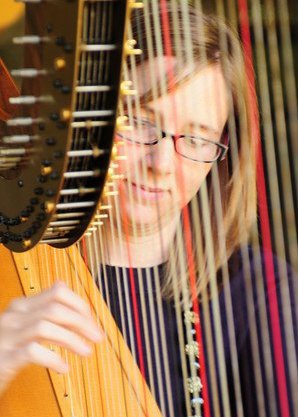 David Carpenter’s
music has been performed throughout the U.S., including venues at the Aspen
Music Festival and School, the Oregon Bach Festival, the Brevard Music Center, and
the International Double Reed Society Conference. His music has been performed
by the Temple University Concert Choir and Chamber Orchestra, Network for New
Music, Momenta Quartet, Pascal Gallois, the Argento Ensemble, and the Delaware
County Symphony, where he was composer-in-residence for the 2012-13 season.
David Carpenter’s
music has been performed throughout the U.S., including venues at the Aspen
Music Festival and School, the Oregon Bach Festival, the Brevard Music Center, and
the International Double Reed Society Conference. His music has been performed
by the Temple University Concert Choir and Chamber Orchestra, Network for New
Music, Momenta Quartet, Pascal Gallois, the Argento Ensemble, and the Delaware
County Symphony, where he was composer-in-residence for the 2012-13 season.
David held a residency at the MacDowell Colony and a
fellowship at the Boyer College of Music at Temple University, where he earned
a doctor of musical arts degree studying with Dr. Maurice Wright. David has taught
at West Chester and Temple universities.
Eight scenes from David’s opera, The Age of Innocence,
based on the novel by Edith Wharton, will be performed on Sunday, November 17,
2013 at 3 p.m. at Christ & St. Stephen’s Church, 120 West 69th Street, New
York City. Admission is free.
In addition to his composing career, David does donation processing in the Advancement Department at the Curtis Institute of Music.
In addition to his composing career, David does donation processing in the Advancement Department at the Curtis Institute of Music.
What
is your typical schedule and the balance between Curtis and composing?
I
started at Curtis in April 2012 as a part-time temp. I was made permanent in
August, but still part-time; that’s the scope of the job. This job has been a
blessing because I get health insurance. It’s incredible. I can’t tell you how
many people are floored when I say I’ve got a part-time job with health
insurance that I don’t have to pay for. I’m very lucky to have that.
I’m
at Curtis for only 4 hours a day, and it goes so fast because I have to get a lot of things done. It’s almost a relief to do my job and to get away from
composing for a while, and not have to check my personal email.
After
4 hours, you’re tired, and it’s dangerous to have the afternoon off because you
want to take a nap. But what I do actually, is, go to a practice room and do at
least a half hour of composing whether I want to or not. I have to be
disciplined about it, and keep at it, because otherwise I feel like I’m not
really being a composer if I’m not writing music.
I
used to work in a library for 8 hours a day, which was very depressing because
that’s all you get to do. You go home, and you’re tired, and you’re not feeling
creative. Everyone at Curtis knows I’m part-time, and I’m glad people there
know that I have this opera and this other life.




















